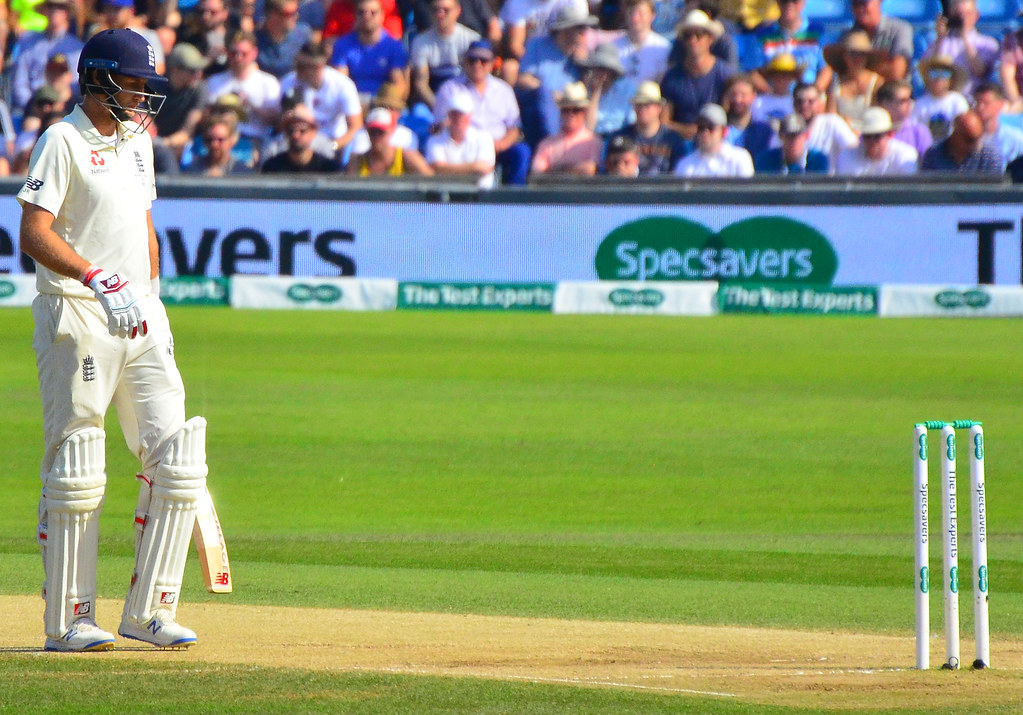Throughout the history of test cricket different countries have adopted certain traits. The Aussies always have a fierce pace attack, the West Indies always bat with flair, India boast all round excellence, and England have the middle order collapse.
Going into the test series against New Zealand, change was everywhere. Red ball specialists filled the line up and new coach Chris Silverwood echoed his philosophy of batting time at the crease. The more permanent absence of all-time leading wicket taker Jimmy Anderson also called for Stuart Broad to establish himself as the leader of the relatively inexperienced bowling contingent.
Mount Maunganui hosted the first test of the series and was home to what seemed a batting friendly wicket. England therefore chose to bat after winning the toss and looked promising. Silverwood’s mantra was being echoed by the new opening pair of Sibley and Burns as they kept their wickets through the morning session. Promising showings from Denly, Burns and particularly Stokes, saw the team finish on a strong looking 353. This however was as good as it was going to get for England.
New Zealand started batting with very little action to write home about. Kane Williamson does what Kane Williamson does and reached a half century only to be removed by the fiery Sam Curran. The match seemed to be in England’s hands until BJ Watling and De Grandhomme came to the crease, followed by Santner. Numbers 6 to 9 scored a combined 396 runs and flipped the match on its head. England’s bowlers did make this easier with an uninspired performance particularly from Broad and Archer that many could argue are continually mismanaged by Joe Root.
England went on to lose by an innings after a poor batting effort in the third and thus, a media fallout ensued. Questions over Root’s captaincy have dominated the headlines as he has just passed 20 innings in a row without a century. The pessimists would say that we have no one averaging above 40 in recent time, bar Stokes, and no one making a difference when bowling away from home. Jofra’s attitude and general body language was concerning and Root seemed a more threatening spinner than Leach, Oli Pope is still faltering at the international level and with Jonny Bairstow waiting in the wings patience with his growth may be limited.
Inevitably people will be looking for solutions to this spiralling test team, but is change going to help? Is more disruption going to harm the team further? Let’s not forget that since the days of Cook, Strauss, Pietersen, Prior, Swann and more, it has been constant change in the line-up. The England team was once a sturdy XI that fans could recite off by heart. Now, it’s a source of debate and uncertainty. Whilst I appreciate that Root’s decline in stats are obvious when he has the captaincy, I can’t see a better option. People have called for Broad to take temporary captaincy whilst Root finds form and whilst that could work, I’d rather see the management keep faith. The bowling attack is a greater area of concern for me as I fear that this is a team too reliant on swing and seam on wickets that give the bowlers a lot to work with. Continuing through the series it’ll be interesting to see where the now bearded Woakes comes in and what he can offer to this team.
I think my best argument for keeping faith with Joe Root and this team without drastic change can be summed up in an anecdote told by Alistair Cook in a recent podcast. He told a story of Andrew Strauss who felt he had played one bad innings too many after a duck in New Zealand and later called his wife fearing it was the last time he would play for England. Strauss then went onto to score 170, later get the captaincy and lead one of the most successful test teams England has ever had.
This young England team will have to endure a lot of struggles as they find their feet as there are too many issues for a quick fix. The worry is they could take one beating too many and youngsters like Pope and Sibley could be out of the game before their careers even started. As for Root, his greatness will be defined by this period of his career and hopefully, much like greats that have gone before him, resilience will be the emerging quality that comes from this difficult time.
By Harry Booth
Photo credit: Bun Sutherland via Flickr

